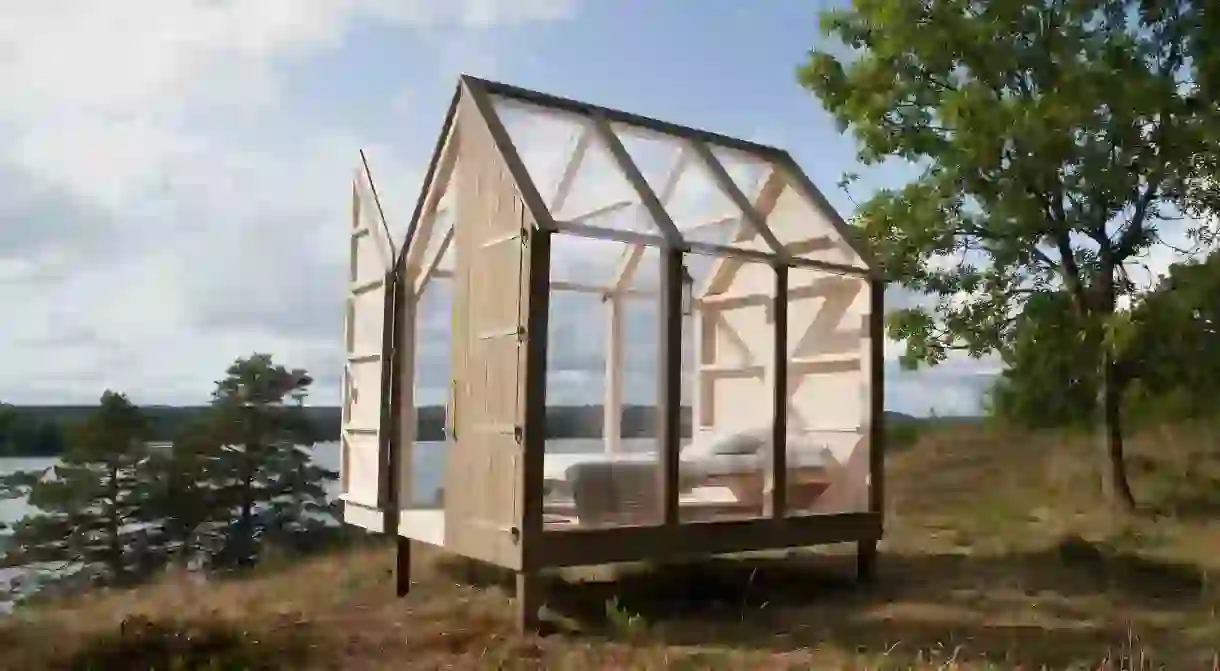Could 72 Hours in a Glass Cabin Improve Your Well-Being?

Two researchers from Karolinska Institutet in Stockholm are conducting a 72-hour case study to measure the effects of the great outdoors on well-being, stress levels, and happiness.
Freedom to roam the land. The Swedes have a name for it: allemansrätten. There’s even a law in their constitution that stipulates everyone’s right to freely access nature. That means you can set up a tent anywhere and build a campfire (even on private property, as long as you’re 70 meters away from a dwelling house). You have the right to forage berries and wild mushrooms, swim and fish in the lakes, access any beach, and generally ramble about in nature. Sweden takes its nature time very seriously.

In an effort to “share knowledge about the inclusive Swedish nature lifestyle,” its tourism board introduced “The 72 Hour Cabin” project. In the case study led by Dr. Walter Osika and Dr. Cecilia Stenfors, both of whom specialize in stress research, five participants who hold some of the world’s most stressful jobs will stay in a custom-built, glass cabins on Henriksholm Island for 72 hours.
Participants in the project include Ben Fogle, a broadcaster from London, Marilyne Didier, a taxi driver from Paris, Baqer Keshwani, an event coordinator from New York, Steffi Tauscher, a police officer from Munich, and Chris Leadbeater, a journalist from London. Researchers will measure how a “close to nature” lifestyle affects their well-being and stress levels.

The aim of the project, according to Visit Sweden, is to “explore the effects of the unique relationship Swedes have with nature – and to invite the world to experience it too.” Allemansrätten is considered a “living expression” of the Swedish culture. With nearly 95 percent of uninhabited land and 100,000 lakes in Sweden, the population is encouraged to explore new territories and unwind, recover, and relax in the rustic wilderness.
During the 72 hours, participants will live close to nature in the glass cabins – swimming, fishing, and cooking off the grid. Researchers hope to highlight how this immersive time in nature enables people to “switch off and increase their well-being,” while improving their quality of life and making their days more meaningful.
Results from the study will be released on October 10th.














